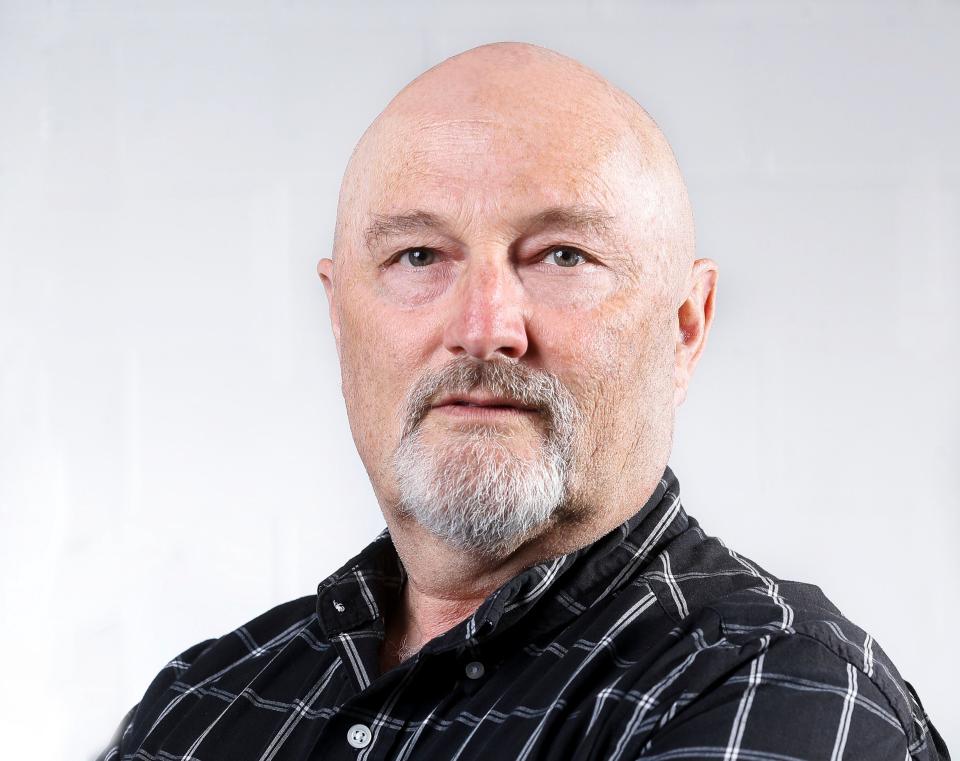Memorial Day reminds us that sacrifices should not be vain | GARY COSBY JR.
“But, in a larger sense, we can not dedicate — we can not consecrate — we can not hallow — this ground. The brave men, living and dead, who struggled here, have consecrated it, far above our poor power to add or detract. The world will little note, nor long remember what we say here, but it can never forget what they did here. It is for us the living, rather, to be dedicated here to the unfinished work which they who fought here have thus far so nobly advanced. It is rather for us to be here dedicated to the great task remaining before us — that from these honored dead we take increased devotion to that cause for which they gave the last full measure of devotion — that we here highly resolve that these dead shall not have died in vain — that this nation, under God, shall have a new birth of freedom — and that government of the people, by the people, for the people, shall not perish from the earth.”
Those words are from Abraham Lincoln’s famed Gettysburg Address, one of the most powerful speeches ever made. It is inscribed on the wall of the Lincoln Memorial and should be inscribed upon the minds and hearts of every political leader in Washington.

Far too often, those words have been forgotten or ignored by politicians who dispatched our soldiers to their deaths on fields of conflict in far-flung places that seem to have little direct impact on the United States. The “last full measure of devotion” should only be demanded of soldiers when necessity leaves no other option.
In the history of our nation, more than 1.1 million men have given their lives during America’s wars. Our deadliest war was, of course, the U.S. Civil War where about half a million men died, almost half of the total deaths in combat over our entire history.
It is not surprising that the highest number of deaths for a single battle came in World War 1. The Meuse-Argonne offensive cost more than 26,000 American lives and was fought between September and November 1918. The Battle of the Bulge was the second-most-deadly battle, costing more than 19,000 lives in December 1944 through January 1945.
After the Civil War, World War II claimed the most lives with at least 400,000 men killed. Those numbers are huge whereas our conflict in the Persian Gulf killed just over 1,500 and the War on Terror claimed just under 7,000 U.S. lives.
While those recent numbers may seem minimal in comparison, every single death represents a family devastated. Every family impacted must grieve and go through the pain of having to say goodbye to one they loved.
Abraham Lincoln’s letter to Mrs. Bixby, a Massachusetts woman who allegedly lost five sons in the American Civil War, is reported to have said, “I have been shown in the files of the War Department a statement of the Adjutant General of Massachusetts that you are the mother of five sons who have died gloriously on the field of battle. I feel how weak and fruitless must be any word of mine which should attempt to beguile you from the grief of a loss so overwhelming. But I cannot refrain from tendering you the consolation that may be found in the thanks of the Republic they died to save. I pray that our Heavenly Father may assuage the anguish of your bereavement, and leave you only the cherished memory of the loved and lost, and the solemn pride that must be yours to have laid so costly a sacrifice upon the altar of freedom.”
More: Look out for the frightening new world of artificial intelligence | GARY COSBY JR.
Lincoln might not have been the author of the letter, it might well have been written by his private secretary, John Hay. No matter, the thought is akin to his Gettysburg Address and should be attended by the political masters of the military with equal diligence.
Every American family who has been called upon to lay their loved one upon that sacred altar of freedom must be assured that the sacrifice of their loved one was not in vain, that the precious gift of life given by that soldier and his or her family has meaning beyond some petty political bickering or posturing.
The problem that so many Americans had with Vietnam was it was never made clear why it was necessary for so many American men to die in a jungle halfway around the world and for a people who seemed unwilling to fight for themselves.
When our nation commits our young men and women to war, it owes every soldier and every family member a debt of obligation that says his or her life is not being invested in a meaningless endeavor, that the life that hangs so perilously over that dreaded altar will not be used up in some vain and pointless conflict, that the soldier is not some political pawn but a life invested with meaning.
We owe much to our soldiers, but the greatest debt of all is that we not use those precious lives pointlessly.
Gary Cosby Jr. is the photo editor of The Tuscaloosa News. Readers can email him at gary.cosby@tuscaloosanews.com.
This article originally appeared on The Tuscaloosa News: Memorial Day reminds us that sacrifices should not be vain | GARY COSBY JR.

